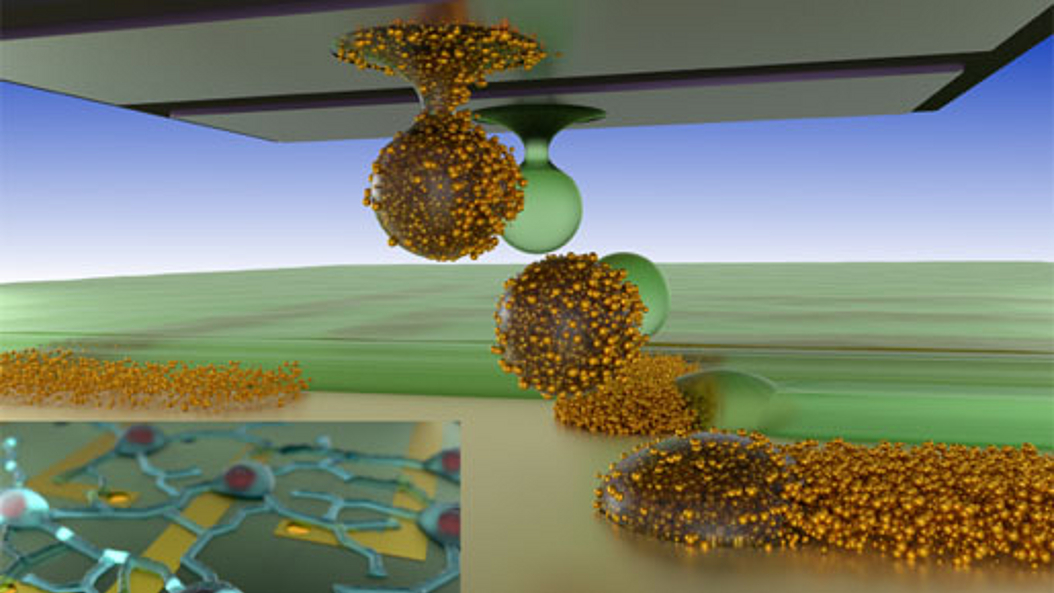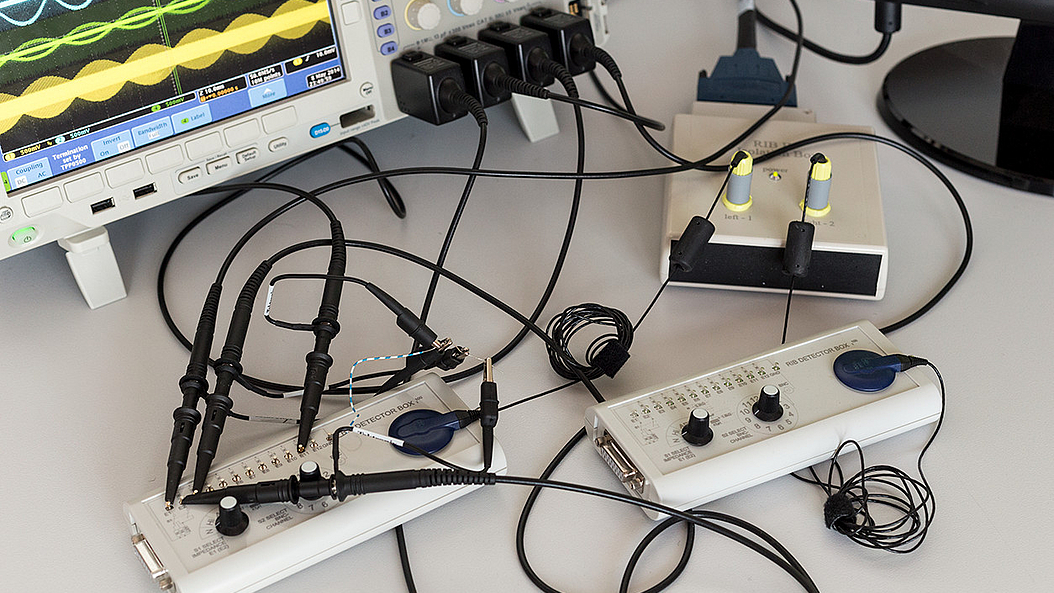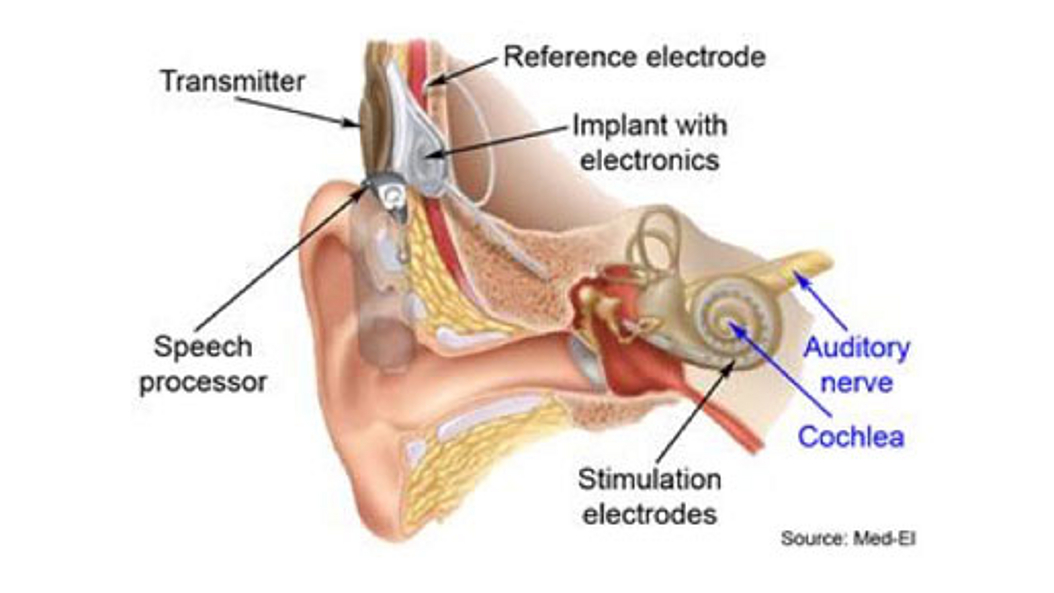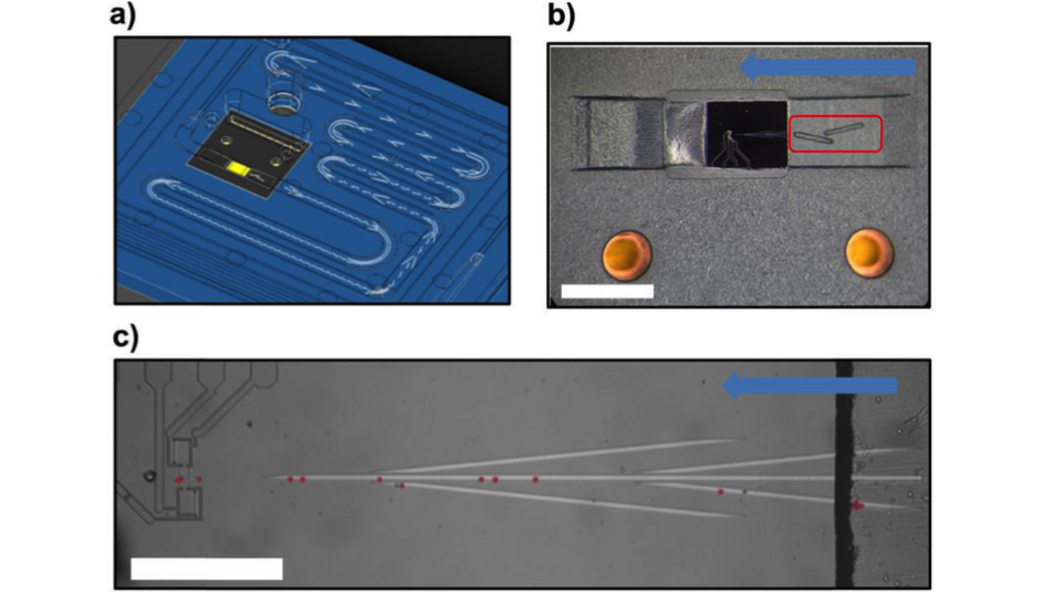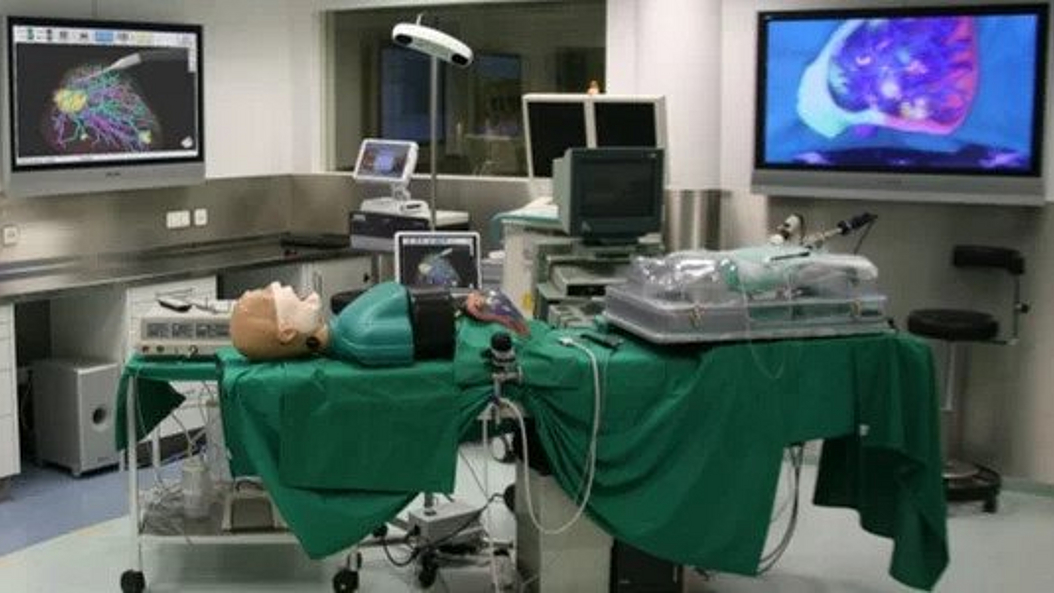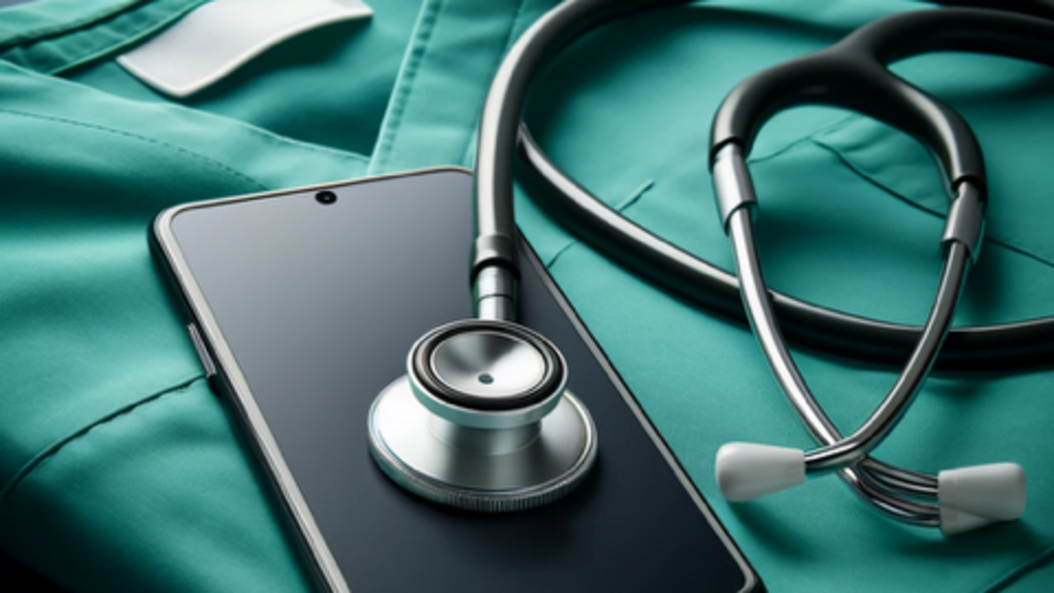Biosensors & Smart Medical Devices
In the research area Biosensors and Smart Medical Devices, MIBE researchers are working on novel concepts and technologies to improve the electronic and chemical detection of signals from biological systems and to generate medical applications.
Neuroelectronics
PI Bernhard Wolfrum
Associate Professorship of Neuroelectronics
Publications
Bernhard Wolfrum, Professor for Neuroelectronics, and his team investigate bioelectronic interfaces and sensor arrays for neurotechnology and point-of-care applications. In particular, the researchers develop devices for stimulating and monitoring signals in vivo and in vitro. To this end, they use microfabrication and printing technologies, integrating 3D transformable electrode arrays with soft, flexible and biocompatible materials. For sensor applications, they devise electrochemistry- and impedance-based detection strategies and modulate mass transport using integrated microfluidics. Their systems are designed for invasive and non-invasive neurotechnology as well as in vitro biosensor assays with potential applications for monitoring 3D cell culture and organoid systems.
Audio Information Processing
PI Bernhard Seeber
Professorship for Audio Information Processing
Publications
The Audio Information Processing group investigates the processing of sound in the human auditory system and uses this knowledge to improve hearing devices and audio systems. Experiments on how we perceive sounds guide the group in building signal processing models of the hearing system. Such models form the basis for audio coding („mp3“) and hearing device processing, and help design product sound quality.
The focus of the group is on improving hearing devices through novel approaches for audio coding in neuronal prostheses (cochlear implants) and hearing aids. They are interested in the brain’s processing of acoustic scenes with multiple sounds and reverberation because these are particularly challenging situations for people with hearing impairment.
Bio-inspired Information Processing
PI Werner Hemmert
Professorship for Bio-inspired Information Processing
Publications
The cochlear implant is the most successful neuroprostheses, and this project develops novel approaches for the advancement of neuroprostheses, where the main research focus lies on cochlear implants. They replace a full sensory organ and are able to restore hearing and especially speech understanding to a surprisingly high degree. The research success relies on the combination of theoretical concepts (models of the electrical excitation of neurons, sound processing in the auditory pathway), development of novel technology (e.g. binaural listening technology), objective measurements (recording of evoked neuronal potentials) and listening experiments, which is conducted in close collaboration with workgroups from the fields of biology, medicine and industry.
Measurements of Cell Function
PI Oliver Hayden
Heinz-Nixdorf-Chair for Biomedical Electronics
Publications
Cells are the smallest integral unit of life. However, integrated testing of cell function and cell-cell interaction on various time scales is an unmet clinical need. In a highly interdisplinary research field at the Chair of Biomedical Electronics the team around Professor Hayden focuses on workflow integration and biosensing methods for precision measurements of cell function. (a) A magnetoresistive sensor, adopted from hard disk read heads, is tuned for single cell analysis with respect to cell size, magnetic loading of cells, and cell morphology. (b) To minimize Si area for bedside Point-of-Care Testing they have designed a functionalized semiconductor package housing a 2×2 mm² sensor in an injection moulded microfluidic device. (c) The system balances magnetophoretic and hydrodynamic forces for precise and highly reproducible probing of single cells and thus could provide cell function testing in an integrated workflow at the bedside for fast clinical outcome.
Micro Technology & Medical Device Technology
PI Tim Lüth
Chair for Micro Technology & Medical Device Technology
Publications
Professor Lüth’s research covers the development of processes and mechatronic systems for medical devices and surgical robots, rapid prototyping and assistance systems for the elderly.
Health Informatics
PI Björn Schuller
Chair for Health Informatics
Publications
CHI – the Chair of Health Informatics – combines computer science with modern health care and medicine. The main focus lies in the acquisition, analysis, and interpretation of biosignals including in daily life, such as those generated in monitoring heart activity, metabolism, or neuronal activities. Additionally, acoustic, visual, and a variety of other parameters are also evaluated. The goal is prevention, diagnosis, as well as decision support and intervention through efficient, transparent, and trustworthy methods of current Artificial Intelligence.
